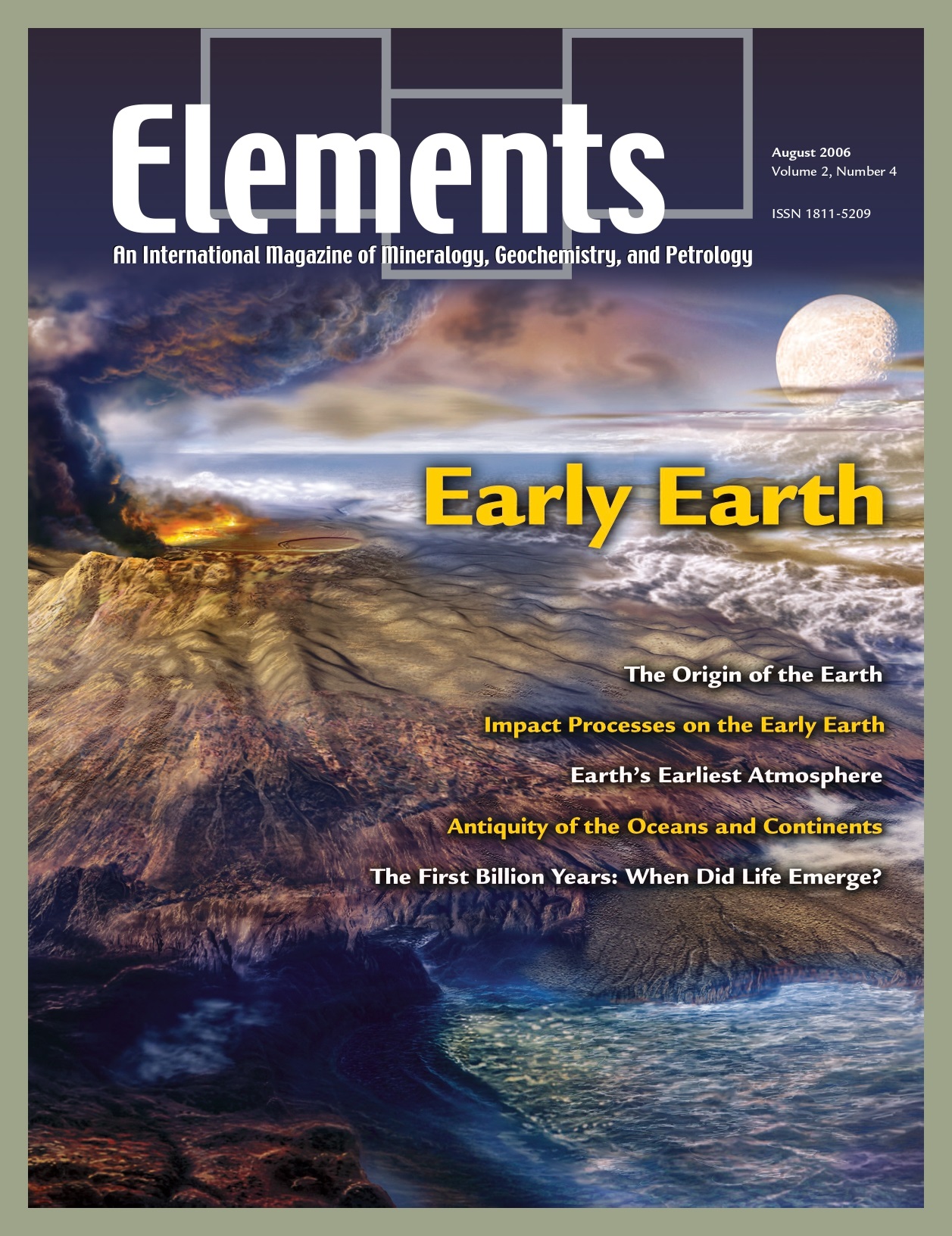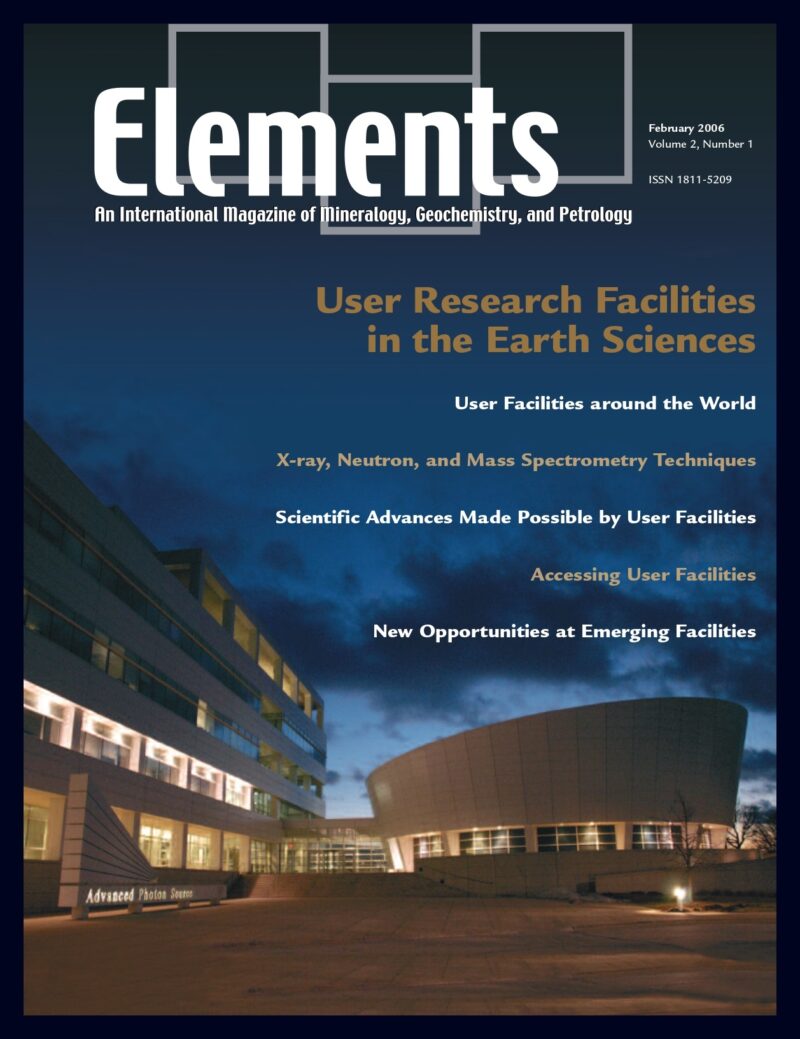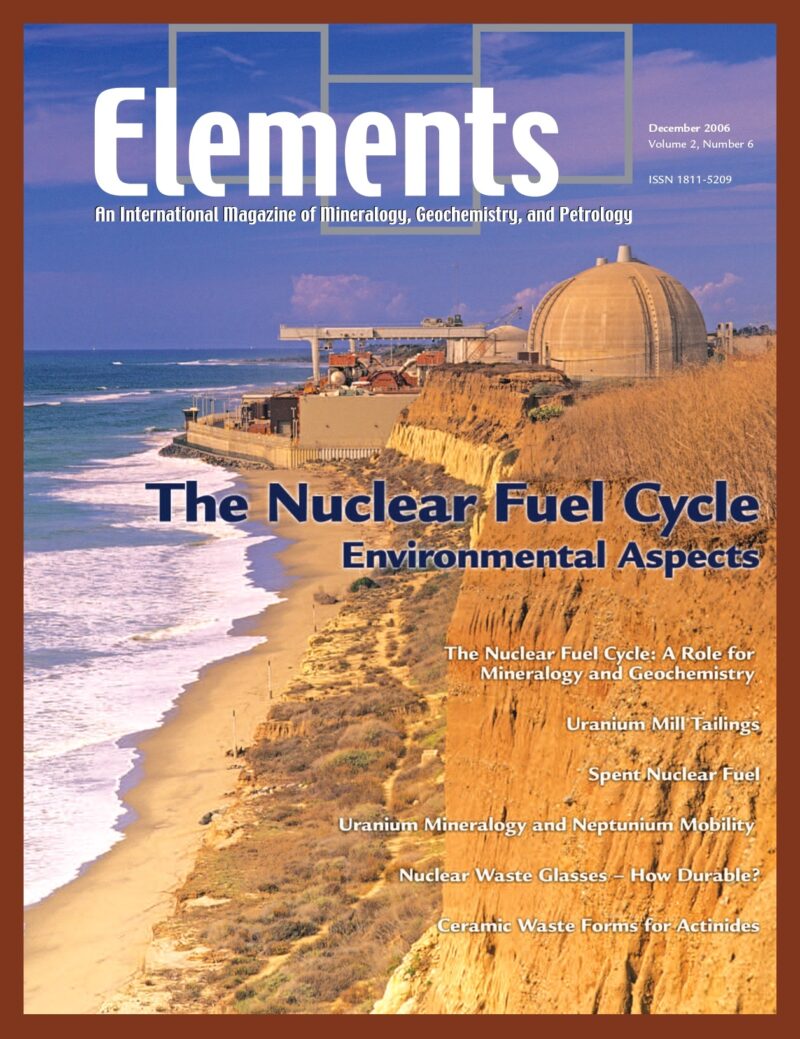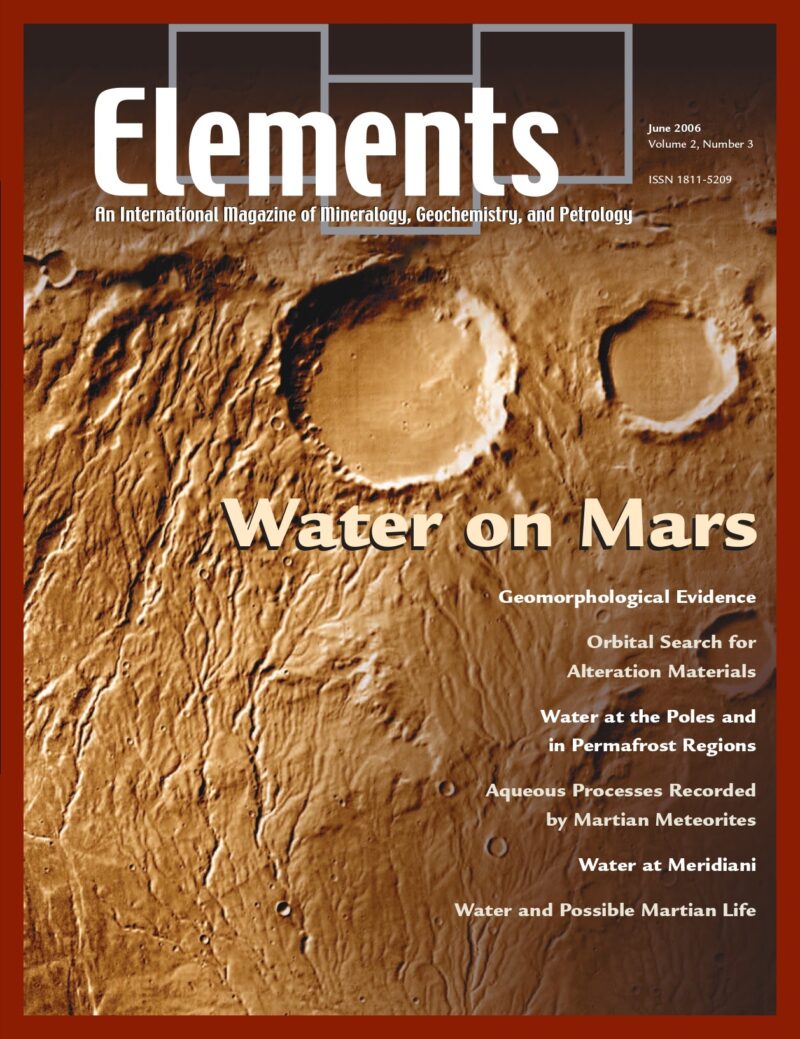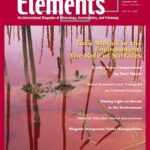
Toxic Metals In The Environment: The Role Of Surfaces, September 2005, Vol. 1, No. 4
June 28, 2024
The Nuclear Fuel Cycle – Environmental Aspects, December 2006, Vol. 2, No. 6
June 28, 2024Early Earth, August 2006, Vol. 2, No. 4
$20.00
The earliest Earth was a strange inhospitable world, yet transitions occurred culminating in the evolution of life within the first billion years. The preservation of a sparse and ambiguous rock record has encouraged debate.
Early Earth
August 2006, Vol. 2, No. 4
The earliest Earth was a strange inhospitable world, yet transitions occurred culminating in the evolution of life within the first billion years. The preservation of a sparse and ambiguous rock record has encouraged debate. Recent studies have greatly refined the nature and timing of key events. This issue reviews current knowledge of the age of the Earth, massive meteorite impacts, the atmosphere and hydrosphere, the rock record, and the emergence of life.
Why You’ll Love Elements Magazine:
- Expert Contributors: Articles written by renowned researchers in the field of geoscience.
- Engaging Content: Join a community of readers who are passionate about Elements.
- Exceptional Quality: Each issue is printed on high-quality paper with stunning visuals and detailed illustrations that bring complex scientific concepts to life.
Order your copy of the August 2006 issue of Elements magazine today and uncover the mysteries of early Earth.
Related products
-
User Research Facilities In The Earth Sciences, February 2006, Vol. 2, No. 1
$20.00Earth scientists rely on effective access to user research facilities that provide state-of-the-art analytical instrumentation. This thematic issue focuses on some of these facilities and how to use them.
-
The Nuclear Fuel Cycle – Environmental Aspects, December 2006, Vol. 2, No. 6
$20.00Increasing concerns for the effects of global warming that result from rising greenhouse gas concentrations in the atmosphere have led to a reexamination, even enthusiasm, for nuclear power. Of all the current alternatives to fossil fuels, nuclear fission is the most important source of energy, accounting for 17 percent of the world’s electricity.
-
Water On Mars, June 2006, Vol. 2, No. 3
$20.00During the past several decades, spacecraft data have transformed the planets from astronomical objects into geologic worlds. Mars is the current focus of planetary exploration, and NASA’s objectives for this effort are based on the theme, “follow the water.

